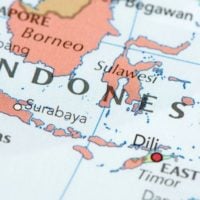Deadline: 12-Apr-22
The European Commission is calling for proposals to support the regions in developing pathways towards climate resilience and corresponding innovation agendas.
Scope
- This topic relates to the Mission’s second objective, and aims to have at least 100 regions and communities that will have formulated their vision of a climate resilient future and the transformative adaptation pathways, plans and innovation portfolios to reach it.
- This action aims at providing the necessary knowledge, expertise, and services to support regions in the formulation of their climate resilient future and of their place-based transformative adaptation pathways, plans and innovation portfolios.
- Regional and local authorities will be in the lead of the process developing their respective pathways towards climate resilience and corresponding innovation agendas. They will be supported
- by the overall consortium selected under this topic that will provide the general framework and tailored support to selected regions and communities and facilitate the orchestration of activities across regions and communities, and
- by a local, regional and /or national partner organisation with experience of working on climate adaptation, including societal transformation, that will be engaged through support to third parties in the for of grants (for minimum 70% of the EU requested contribution and of the maximum amount of EUR 300 000 per region) for each of the participating regions and communities.
Funding Information
The check will normally be done for the coordinator if the requested grant amount is equal to or greater than EUR 500 000, except for:
- public bodies (entities established as a public body under national law, including local, regional or national authorities) or international organisations; and
- cases where the individual requested grant amount is not more than EUR 60 000 (low value grant).
Expected Outcomes
Projects are expected to contribute to all of the following outcomes:
- In the participating regions and communities:
- The pathways to a climate resilient future and their corresponding innovation agendas that regions and communities will have developed as output of this project are used to shape relevant research and innovation strategies, and to mobilise research and innovation actions to develop, test and up-scale systemic solutions increasing local climate resilience as identified.
- The pathways to a climate resilient future and their corresponding innovation agendas that regions and communities will have developed as output of this project are reflected in political commitments to prepare the ground for the large-scale diffusion of solutions, including policy actions promoting enabling conditions, addressing barriers and leveraging funds.
- The process developing these pathways and innovation agendas to a climate resilient future will have further mobilised and inspired the engagement of citizens, academia, the private sector and other stakeholders, including trough social innovation, in the transformative journey to climate resilience within the regions and communities and beyond.
- Within and beyond the participating regions and communities:
- The process developing these pathways and innovation agendas to a climate resilient future will have provided a better understanding of cross-border interdependencies, risks and opportunities, as well as led to an increase in inter-regional coordination and collaboration to achieve cross-border climate-resilience and harmonization of the strategies to achieve climate resilience.
- The process developing these pathways and innovation agendas to a climate resilient future will have provided a better understanding of how to best structure, facilitate and support the processes of deliberating and co-designing transformative pathways to climate resilience in a wide range of environmental, economic, political and cultural contexts.
- The communication and sharing of relevant information and lessons learned will have triggered other regions and communities to also engage in their own processes of deliberating and co-designing transformative pathways to climate resilience.
Eligibility Criteria
To be eligible for funding, applicants must be established in one of the eligible countries, i.e.:
- the Member States of the European Union, including their outermost regions;
- the Overseas Countries and Territories (OCTs) linked to the Member States;
- eligible non-EU countries:
- countries associated to Horizon Europe
- low- and middle-income countries
For more information, visit https://bit.ly/3qfwU33









































